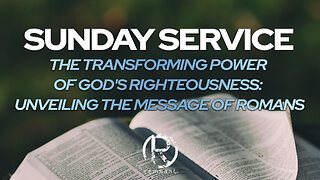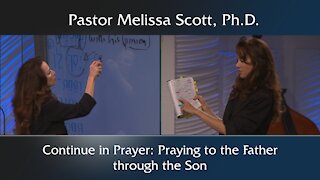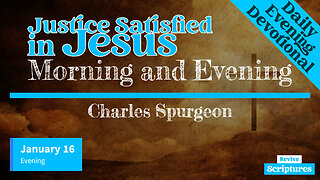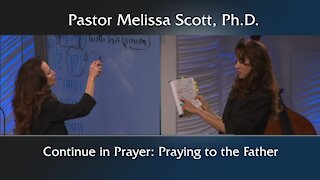Ancient Prayer for Virtue
Ancient Prayer for Virtue
O Lord and Master of my life,
give me not the spirit of sloth,
faint-heartedness, lust of power, and idle talk. (prostration)
But give rather the spirit of chastity,
humility, patience, and love to Thy servant. (prostration)
Yea, O Lord and King,
grant me to see my own errors
and not to judge my brother,
for Thou art blessed unto ages of ages. Amen (prostration)
This prayer was written by St. Ephraim the Syrian (AD 305-373).
And isn’t interesting how someone more than 1600 years ago prayed for the exact things we do today. We need to constantly ask God for his grace to overcome our laziness, loss of hope, pride, and gossip.
We need to be more aware of our current spiritual state and get off our rear side to be more charitable and loving.
We need to quit thinking that we deserve so much, but rather with humility be satisfied and thankful with what we do have. And finally, quit participating in spreading those nasty seeds, which spread the weeds of gossip. This solid advice is as good today as it was back then.
This Prayer of St. Ephraim is the best known of his writings which is recited at every service during Great Lent and other fasting periods in Eastern Christianity.
For some background, St. Ephraim was a deacon in the early church. He was best known for his artful meditations on the symbols of Christian faith and his stand against heresy made him a popular source of inspiration throughout the church. He composed over 400 hymns. He drew on the models and methods of early Rabbinic Judaism, he engaged skillfully with Greek science and philosophy, and he used the Mesopotamian/Persian tradition of mystery symbolism. The most important of his works are his lyric, teaching hymns. These hymns are full of rich, poetic imagery drawn from biblical sources, folk tradition, and other religions and philosophies. If you are interested in the structure of his poetry click on the link in the notes. Ephraim also wrote verse homilies and prose work. He is considered to have a huge influence in bringing song to mass.
One somewhat comical story is that St. Basil invited Saint Ephraim to accept a bishop’s throne, but Ephraim faked being crazy until another was ordained in order to avoid the honor, humbly regarding himself as unworthy of it.
In his final days, the inhabitants of his home of Edessa were suffering from a devastating famine. By the influence of his word, the saint persuaded the wealthy to render aid to those in need, allowing him to build a poor-house for the poor and sick.
This just scratched the surface of St. Ephraim’s life. If you would like to learn more about his works go to the notes and click on the links below.
He also wrote the first Syriac commentary on the Pentateuch (i.e. “Five Books”) of Moses. He wrote many prayers and hymns, thereby enriching the Church’s liturgical services. Famous prayers of Saint Ephraim are to the Most Holy Trinity, to the Son of God, and to the Most Holy Theotokos. He composed hymns for the Twelve Great Feasts of the Lord (the Nativity of Christ, the Baptism, the Resurrection), and funeral hymns. Saint Ephraim’s Prayer of Repentance, “O Lord and Master of my life...”, is recited during Great Lent, and it summons Christians to spiritual renewal.
The most complete, critical text of authentic Ephraim was compiled between 1955 and 1979 by Dom Edmund Beck OSB as part of the Corpus Scriptorum Christianorum Orientalium.
https://saintephraim.com/st-ephraim-the-syrian/
https://www.catholic.org/prayers/prayer.php?p=3084
https://www.johnsanidopoulos.com/2019/01/saint-ephraim-syrian-in-ecclesiastical.html
https://www.oca.org/saints/lives/2016/01/28/100328-venerable-ephraim-the-syrian
-
 2:05:13
2:05:13
For His Glory TX
4 months agoEFFECTIVE PRAYER
124 -
 0:40
0:40
HowToBeHealedTV with Christian Diggs
8 months agoHealing Scriptures Concepts 35 📖 Romans 4:19-21 NKJV ✝️ Consider GOD's Promise Not Bad Circumstances
137 -
 0:42
0:42
HowToBeHealedTV with Christian Diggs
8 months agoHealing Scriptures Concepts 34 📖 Romans 4:19-21 KJV ✝️ Strong Faith Gives Glory To GOD in Advance 🙏
154 -
 57:19
57:19
Todd Coconato Show
10 months agoSunday Service I The Transforming Power of God's Righteousness: Unveiling the Message of Romans
2.49K1 -
 11:35
11:35
Jesus' Revelations thru Jakob Lorber English
1 year agoHow do I find My true inner Peace ?... ❤️ Jesus explains Scripture John 16:33
131 -
 58:19
58:19
The Book of Colossians Chapter 4
2 years agoColossians 4:2 Continue in Prayer: Praying to the Father through the Son - Colossians Ch 4 #3
130 -
 3:23
3:23
Revive Scriptures
5 months agoJanuary 16 Evening Devotional | Justice Satisfied in Jesus | Morning and Evening - Charles Spurgeon
61 -
 2:26:06
2:26:06
For His Glory TX
4 months ago🔥 THE WORK OF THE HOLY SPIRIT (PART 4) 🔥
88 -
 58:30
58:30
The Book of Colossians Chapter 4
2 years agoColossians 4:2 Continue in Prayer: Praying to the Father - Colossians Ch 4 #2
118 -
 18:37
18:37
Campbellfamily07
1 year agoMorning Reads: “DEVOUT” (Be Faithful)- What’s a THOUSAND YEARS to God- “I’m being Called PRIESTHOOD
41